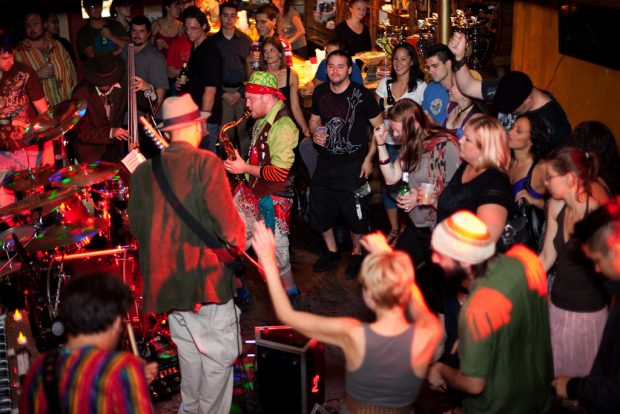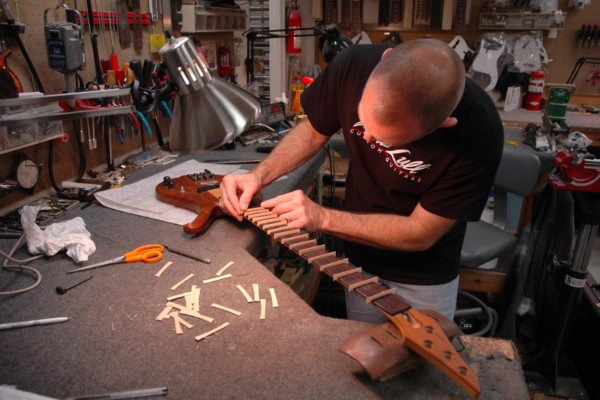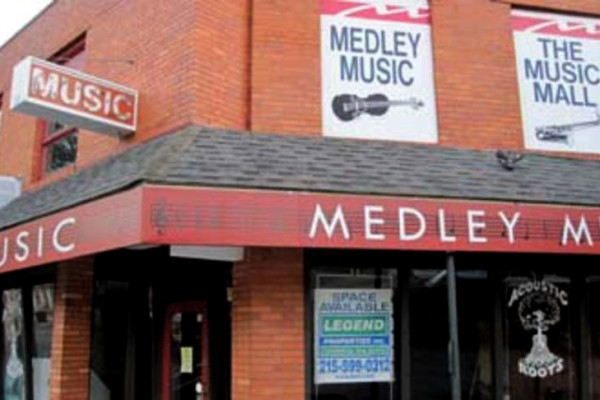The Lightbulb Moment: Support Your Local Economy, Part 1

We live in a pretty hectic world. In addition to our day-to-day worries, such as battling traffic and remembering to buy toilet paper, we can’t seem to escape from the never-ending news cycle. Lately, politics seem to have taken over; there is ongoing discussion of constitutional amendments, how to deal with big business and the global economy, and how the government is supposed to spend tax dollars. Some of us are lucky enough to cast a vote and, in theory, make our voice heard in the political arena — we hope that the person’s name we punch at the polls will in some way impact the way we receive health care or where we can buy alcohol. Unfortunately, there’s quite a disconnect between our individual votes and the creation of legislation. With so many degrees of separation in place, it’s hard to believe that voting is the best way to make our voices heard — there’s got to be a better way.
When we vote, we’re essentially hoping that the government decides to invest time and money in a way that will benefit the interest of our country and its citizens. But what about how we spend our money? Most of us work incredibly hard to earn a living and often have to be picky about where our income goes. If you’re reading this, some of it probably goes into music… investing in gear, going to concerts, buying records, etc. We believe in the power of live music and what it feels like to see our favorite band or to perform with our own group; we geek out about our instruments and old records; we spend time in lessons, at jam sessions, or on message boards. We love music, so much so that some of us decide to make a profession out of it as players, teachers, builders, or writers. In order to continue having these things that we love, we need to put our money where our mouth is — we must support the people, bands, and businesses that in turn enhance our quality of life. In doing so, we cast our vote for that which is dear to us.
This column mini-series addresses just that — the ways that we can and should support our local music economy to keep the lights burning bright in the stores, studios, and souls of creative folk. I’ve decided to break things down into three parts: first, local venues and bands, for there must be a venue for a band to play at, and vice versa. Second, the local businesses, studios, and teachers that provide us with the tools and inspiration to embark on a musical journey. And third, the independent companies that strive to make the instruments we can’t wait to get our hands on and the gear that facilitates our ability to become our best creative selves. The musical community is a great one, but it needs support at the local level in order to survive.
So, without any further ado, I take a moment to focus on my not-so-small town, Nashville. In a place commonly referred to as “Music City,” it’s easy to get spoiled. There’s music going on all the time, half of the people who pull your espresso or take your deposits at the bank play guitar, and some venues book half a dozen acts a day. That said, the local music economy exists because the people here must go out and sustain it. They have to network like their life depends on it, meet up for showcases to see what the industry is going to push next, and hope that they run into the right person to recommend them for the right gig. They also go out to be fulfilled, to experience musicians playing at a higher level, or to listen to something new and exciting. It’s one of the few cities in the world that function this way. And, despite the abundance of music, there are still too many players who can’t get gigs, too many bands who play to empty rooms, and too many venues that decide to close their doors after decades of performances.
Sadly, most towns are lucky to have a single bar or restaurant with live music, let alone a theater, midsize club, or outdoor performance space. I realize this every time I visit another city or chat with someone from out of town. The general consensus seems to be: “I wish there were more places that had live music.” I also learn that few people go out to hear music on a regular basis; they’re up to date with television shows like Game Of Thrones but couldn’t tell you the last time they’ve seen a live band. Therein lies the problem.
The old saying goes that if you build it, they will come; unfortunately, that doesn’t seem to work unless you’re building luxury condos or hip restaurants. Venues won’t exist unless people frequent them, and the fact is that few people take the time to regularly support live music. So, here’s what you can do. Go to a show. It’s as simple as that. Don’t go to the movies, or to a new restaurant, or to the golf course. Go and hear someone’s band play. Support them, support the venue, and give both the musicians and the club owner a reason to exist. Otherwise, they won’t. The restaurant or club will continue to employ Spotify rather than a band and the musicians will remain confined to their garage, unable to satiate their hunger to play to a real audience. They will both give up and the live music will disappear. Grim as it may seem, this happens time and time again.
But what if the outcome were different? What if you go out to support your friend’s band? Well, then there’s a good chance that they make some money, the club makes some money, and both parties declare the evening a success. The club has music because they know that it will draw people to their establishment, the band plays because they want to share their music with the world and/or make a living, and you go to the show to support the musicians, support the club, and invest in a venue that, one day, may invest in you. It’s a collection of people and places, a symbiotic relationship, a ménage a trois of the artist, venue, and audience. They are three things that can’t exist without each other, and whether you work at a club, play in a band, or simply love going out to hear music, you need to participate in the scene as much as you can. Furthermore, if you have a band of your own, the best way to book a gig is by going to the venue and showing them that you appreciate live music. By talking to someone, or even to the band that you’ve gone to see, you may find the right contact you need to book a show. None of this would happen if you stayed home in your pajamas.
So, the next time you think to yourself “what should I do tonight?,” make an effort to find some live music. Make it part of your vacations, your business trips, and your date nights. Take yourself out to dinner and listen to some live jazz, go to a grimy bar and head bang to some metal, or grab a coffee and enjoy a singer-songwriter. If you don’t, no one else will.
Ryan Madora is a professional bass player, author, and educator living in Nashville, TN. In addition to touring and session work, she teaches private lessons and masterclasses to students of all levels. Visit her website to learn more!



Fantastic article Ryan. This is something that I have been trying to get people to understand for some time.